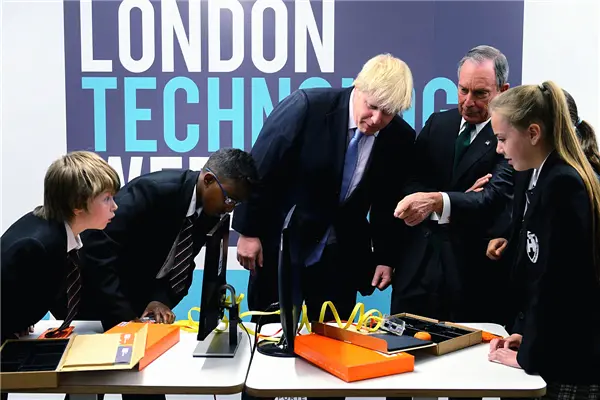Britain’s vote toexit the European Unionhas left venture capitalists downcast about the future of entrepreneurship and funding startups in Europe’s second-biggest economy.
“There’s no positive in this,” saidHarry Nelis,a London-based partner with Accel Partners. “The question is how negative is the news.”
Although many observers tried to play down some of the gloom-and-doom predictions that have rippled around the world, venture capitalists widely frowned on the historic referendum as bad for business and bad for the future of startup opportunities, especially in Britain.
Anxiety about Thursday’s vote centers on the countless questions and uncertainty surrounding what to expect in watching a nation break away from the EU, an event without precedent.
How Britain negotiates terms of its exit—a process that could take at least two years—could have far-reaching consequences since the U.K. accounts for about one-third of Europe’s venture-capital fundings.
For decades, London has benefited from its dual role as the de facto banking capital and primary hub for entrepreneurship in Europe, identities that flourished under the EU’s charter of free movement of goods, capital and migration. Several startup watchers and investors said much of that could be lost by leaving the 28-member union.
Britain’s departure represents “a devastating blow” to the momentum the nation’s startup scene has enjoyed in recent years, saidKristian Segerstrale,a co-founder of the social-game company Playfish who is now an investor with Initial Capital in London and Silicon Valley.
“Talent may be barred from entering in the future, but already now the writing is on the wall,” Mr. Segerstrale said. “Should you as a top-of-your-field [artificial-intelligence] researcher from Italy move to Berlin, Helsinki, Silicon Valley or London to pursue your startup? London will seem a lot less interesting now.”
On the day after the vote, PresidentBarack Obamacoincidentally addressed an entrepreneurship conference of venture capitalists and startup founders at Stanford University. Speaking to the group, he pointed to the referendum as a reminder of the challenge facing innovators in a world ever changing from globalization.
“The world has shrunk, it’s interconnected, and all of you represent these interconnections,” Mr. Obama said. “Many of you are catalyzing and accelerating it. It promises to bring extraordinary benefits, but also challenges, concerns and fears.”
Mr. Nelis of Accel Partners, which just closed a $500 million fund in April to target investments in Europe and Israel, is looking to invest in startups that have very strong reasons to exist. And he said, even though the vote is a step back, “it won’t kill any of those companies.”
Dan Ciporin,general partner at Canaan Partners, who invests in fintech companies, said the vote will “definitely impact European startups, and fintechs specifically. London has been the center of fintech innovation in Europe, and that is now clearly threatened by the Brexit vote.”
Mr. Ciporin said London, which has long been renowned as a beachhead for foreign companies making inroads into continental Europe, will be a big loser in this.
“I think the impact on U.S. startups…is less clear, although certainly it will mean that any decision to put in place a European HQ will be driven much more towards the continent rather than London,” he said. “For fintech, this will probably be a boon to Stockholm in particular, which was probably second to London as a fintech innovation center.”
Tim Wilson,a partner with Artiman Ventures who specializes in early-stage investing, said the vote makes investors more likely to stay away from U.K. opportunities because of the shadow of uncertainty hanging over the issue.
“When I’m comfortable, and I feel like I know the future, then I make different decisions than if I feel like I’m uncertain, and I’m not sure where this goes,” he said.
One of the companies he invested in, Prysm, is based in San Jose, Calif., but has an office in London, where it sells a video technology priced in dollars. With the British pound tumbling on foreign exchanges, Prysm’s sales staff faces a fresh hurdle because its product just got much more expensive for buyers in the U.K., Mr. Wilson said.
Mavra Bari, a British national from Pakistan who was attending the Stanford summit, said she was born in the U.K. because her parents were refugees and were granted asylum.
“I owe a lot to the U.K.,” she said. But she called the Brexit vote “a historically idiotic move.”
(THE WALL STREET JOURNAL)
 简体中文
简体中文

